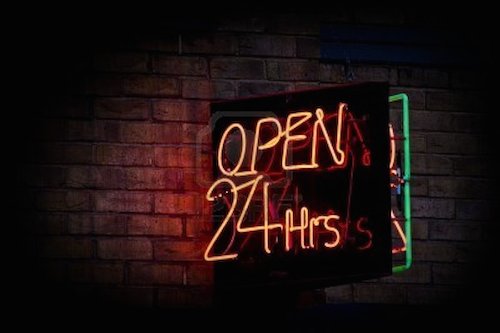Tate book-buyer, Simon Armstrong, picks his favourite way-to-work books of 2014 for Verso

Simon Armstrong is the book buyer for Tate Modern and Tate Britain in London. Instead of an end of year list of art and design bestsellers, he sent us a list of some of the best books he has been reading on the bus to work in 2014:

Private Life: Why We Remain In The Dark
Josh Cohen
Faber
The notion of personal privacy viewed through the prism of psychoanalysis, with literature and film references tossed around everywhere. The effect is rather like squeezing your brain into a Soda Stream - thoughts collide, bubble up, fizz and pop in this excellent book of ideas. It's all very internet-and-personal-information debate relevant, with the added bonus of being a brilliant primer on Sigmund Freud.
The Auctioneer
Joan Samson
Avon Books, 1981.
This creepy and obscure classic novel is a tightly written allegory about despots and exploitation. A small-town charity fundraiser evolves into a full scale extortion racket between town leaders and the people. It's a great, filmic read and criminally overlooked. The book has been out of print since the 80's but you can buy copies online for a few pence!

Wittgenstein Jr
Lars Lyer
Melville House
A twitchy philosophy professor arrives at Cambridge on the brink of either total enlightenment or a mental breakdown. His new students, a hapless bunch of over-privileged boozers and junkies, turn up to class to observe their tutor's rambling, paranoid disintegration. All ends well though, with an unexpected spot of non-theoretical romance.

Men Explain Things To Me
Rebecca Solnit
Faber
A set of recent essays from one of the most astute thinkers and writers working today. Given the title, it would be a bit daft of me to say much about this book, but I recommend all people from all genders read it right away. Buy the UK Faber hardback edition because it has a bit more in it than the original US paperback from earlier in the year.
The In Vitro Meat Cookbook
Koert van Mensvoort, Hendrik-Jan Grievink
BiS Publishers
A speculative and semi-fictional cookbook of the future, anticipating the possible recipes for meals we may be eating once we grow meat from cells in a lab. Sustainable and animal-friendly future food favorites include transparent sushi, Dodo nuggets and Roast Dinosaur Leg (which needs a lot of garlic). Well illustrated, with instructive essays that make this more than just a whim, and some excellent 'photographs' of the complete dishes at the end.
The Burnt Orange Heresy
Charles Willeford
Crown Publishers
I dug out this out-of-print 1971 novel earlier in the year after it was mentioned somewhere on the internet by someone worth listening to. I'm increasingly losing track of sources, because of the Twitter induced pathology of half-but-not-really-reading random articles online, but however I discovered this, I'm pleased I did. Disguised as a pacey noir crime novel, this is really a book about contemporary art, Duchamp, and art criticism. An eager, young art critic sets out to grab a scoop interview with the most famous living artist in the world, who may not have produced any work at all. Includes murder. Is good.
How We Are (How To Live Trilogy: Part 1)
Vincent Deary
Allen Lane
With a deep and rich trove of references drawn from literature, philosophy, film and pop culture, this book jolts us into the realisation that we are all hopelessly willing creatures of habit. Then we freak out when change comes along. This fascinating read sticks in the mind because you cannot fail to by struck by the familiarity, and the denial, of your own flaws and gaps. It is a clarion call for the 'Examined Life'.

Edgewise: A Picture of Cookie Mueller
Chloé Griffin
Bbooks Verlag
Author Chloe Griffin sets out on the trail of Cookie, the New York downtown avant-garde art-scene icon, actress, writer, critic, musician and model who died of AIDS in 1989. In over 80 interviews with Cookie's close friends, lovers, family and fans a fascinating biography is created, navigating 60's communes, 70's New York and 80's Berlin. Contextualised with artwork, flyers, letters and unpublished photographs from Philip-Lorca diCorcia, David Armstrong, Robert Mapplethorpe and others.
Cultural Capital
Robert Hewison
Verso Books
Charting the failed relationship between politics and the arts, Hewison goes in on the failure of government to understand and support culture. New Labour promoted Britain as the world capital of creativity, but by treating the arts as a commodity, and throwing managerial targets on it, they bungled and strangled it. The coalition that followed see no merit in the arts at all beyond financial profit, so cut deep into an already wounded creature. Hewison studies the wreckage, and proposes a new way of rebuilding the arts.
Fantomas Versus the Multinational Vampires: An Attainable Utopia
Julio Cortazar
Semiotext-e / MIT Press.
In 1975, the Argentinian novelist Julio Cortazar travelled to Brussels to take part in a tribunal investigating human rights violations by the United States against Latin America. He was disturbed by the damning evidence presented, and enraged by the fact that the tribunal was merely tokenistic. At the same time, a Mexican superhero comic was published, "Fantomas: Mind On Fire". The plot was based around a global conspiracy to burn all books. He took these two things; the human rights tribunal and the comic; and mashed them together, creating a surreal meta-fictional novel to vent his anger at the United States. The result is clever, effective and funny. Re-published this year by MIT's superb Semiotext-e imprint.

24/7
Jonathan Crary
Verso Books
I overlooked this when it came out in hardback in 2013, but a quick glance at this year's paperback edition and I was hooked. It's a smartly observed polemic about the precious terrain that capitalism craves most: your sleep. Capitalism would really prefer it if we didn’t sleep at all, and the military is doing and spending plenty to make this happen. As most commonplace innovations began in military research centres, be assured your sleep will be stolen soon enough. It already is diminishing of course; the average adult Westerner sleeps around six and a half hours a night, down from eight hours one generation earlier, and surprisingly, down from ten hours in the first part of the twentieth century. Red this book in bed, then have a long lie in.
Culture Crash: The Killing Of The Creative Class
Scott Timberg
Yale University Press
With a knowing nod to Richard Florida, who built a quite a career out of his theory of the 'creative class' and is now scorned as a global gentrifier, writer Scott Timberg serves up a sharp assessment of the collapse and destruction of opportunities for the present and next generation. It's heart-breaking to consider that with rent, house prices, business rates and student fees all on the rise, the chance for people to spend time thinking, creating and doing has been shut down forever. This isn't actually out until January 2015, but I read an advance copy and it’s depressing and oddly motivating in equal measure.
My Friends
Emmanual Bove
Paladin Books
An essay by contemporary artist Harrell Fletcher led me to this strange French novel from the 1920's. The protagonist is a lonely and socially awkward misfit, but one who draws self-confidence from assuring himself that his view of the world is the right one, it's just everyone else that is wrong. I have an weakness for characters like this, who are both amusing and tragic and altogether human. So, nothing much happens with the plot, the prose is flat and the sentences short, the character is frustrating and unkempt. It's brilliant.
Nobody Is Ever Missing
Catherine Lacey
Farrar, Straus and Giroux
Elyria does a runner from New York to New Zealand. She hitchhikes around, and crashes out in fields and parks. What is affecting here is Elyria's internal dialogue, her state of mind and interpretation of the people and events she stumbles into. Here we are again, like Bove, with a character who has their own perspective that no-one can make out.
Stephen Collins
Some Cartoons
Jonathan Cape Publishing
You can look for answers in as many cultural studies and philosophy books as you like, but don't forget that having a laugh is a fine remedy too. Collins responds to the banality and madness of our times with hilarious one page piss-takes of religion, politics and the invasion of digital technology. Great to find a 'humour' book that is genuinely laugh out loud funny. Restorative reading.
These books, and more, are available to purchase from the Tate bookshop. Simon can be found on twitter @simonthebookman.
